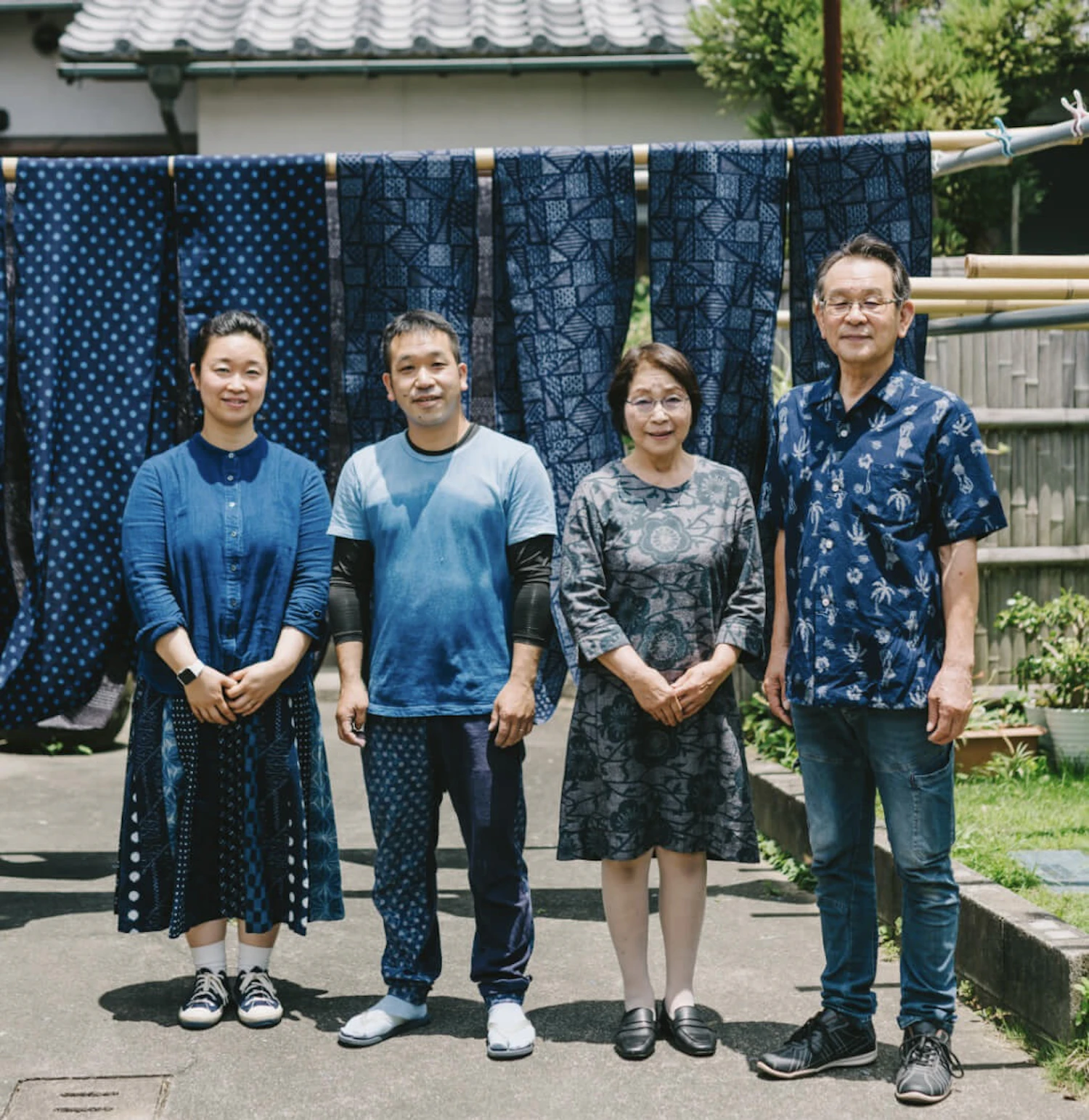

Daigo Ikeda, the fourth generation owner of the Kurume Kasuri workshop Ikeda Kasuri Textile, gained business experience at the mentaiko manufacturer Yamaya and worked in product development and quality/factory management at the towel manufacturing company, Izawa Towel Co., Ltd., before joining Ikeda Kasuri Textile. While valuing tradition, he is also actively engaged in new initiatives to carry the Kurume Kasuri tradition to the next generation.
Kurume Kasuri Crafted by Hand After Numerous Processes
Can you tell us about the origins of Ikeda Kasuri Textile and the woven textiles you produce?
Ikeda Kasuri Textile was established in 1919. Originally, my great-grandfather moved to the Chikugo area when he became an apprentice at a sake brewery in Shiroshima Town. At the time, the kasuri business was thriving, so he changed his apprenticeship from the sake brewery to the Kasuri business, learned a trade, and then became independent, leading to the birth of this workshop.
Our workshop mainly produces textiles through indigo dyeing and hand weaving. There are hand-woven and machine-woven varieties of Kurume Kasuri, and the weaving process for each is slightly different. As a result, differences arise in the uniformity of patterns, density of fibers, and fabric strength (tearing resistance).
The beauty of hand-weaving is that it can express curves, thin lines, and meticulous patterns. The pattern becomes slightly uneven, which adds a unique flavor only found in hand-woven textiles. As you actually use it, the charm of hand-weaving, such as "maintaining strength, lacking uniformity, and having a good sense of play", becomes more evident.
Hand-woven machines come in two types: flying shuttle (nage-hi) and foot-operated machines; our workshop handles both.
Moreover, in general, weavers of hand-woven textiles tend to stick to indigo dyeing exclusively. However, our workshop uses common reactive dyes and colorfast dyes as well. Of course, we stick to indigo dyeing, but we are not obstinate about it. Nowadays, the demand is mostly for clothing, so the characteristic of our workshop is that we make items based on this demand.

This article is for members only.
Please register to read the rest of the article.
- Read members-only articles
and use text-to-speech. - Unlimited article favourites
and browsing history. - Attend members-only events.
- Get the latest information
with our email newsletter.





